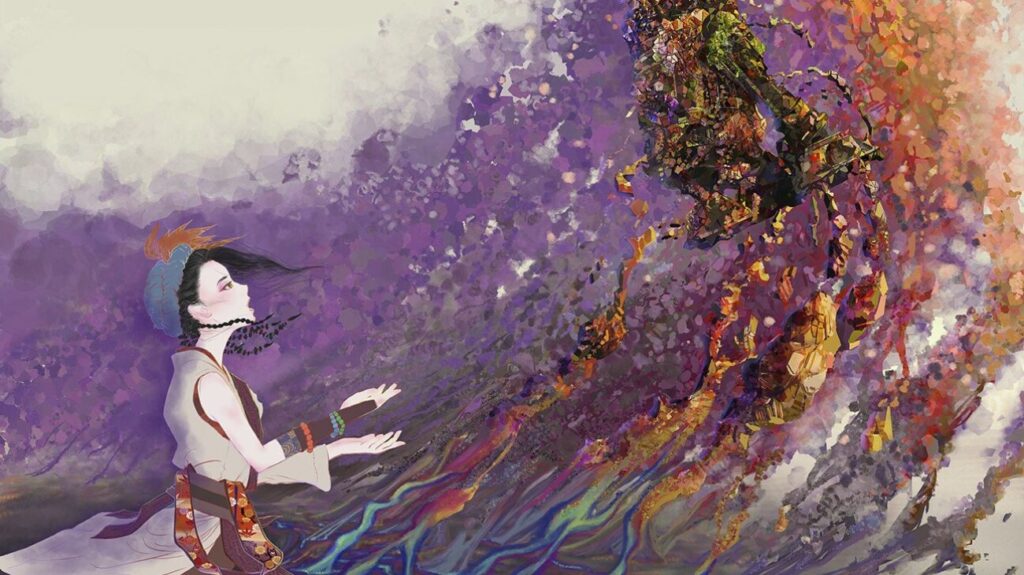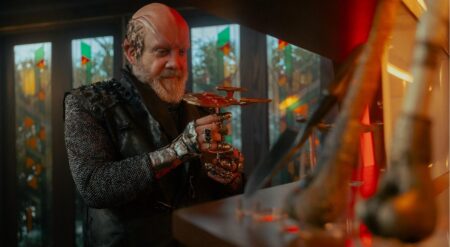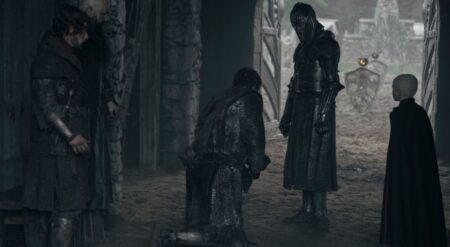At its core, “The Bird of Paradise” isn’t a story about the Jedi, but rather it’s a story about the Force itself. The greatest battle in Star Wars has never been between light and dark; it’s always been the one within. Directed by Tadahiro Yoshihira and produced by Project Studio Q, Star Wars Visions Volume 3 Episode 8 transforms that eternal conflict into something tangible, psychedelic, and profoundly human.
The short opens in the middle of chaos. Jedi Padawan Nakime and her master battle a Sith opponent atop a rocky ridge. No exposition, no setup, just immediacy. Nakime’s overconfidence pushes her forward; she lunges when she should have waited, leaping into the strike that blinds her. It’s a mistake as old as Star Wars itself, echoing Luke’s impatience on Dagobah and Anakin’s arrogance on Mustafar. But the aftermath is what matters.
Thrown from the battlefield and cast into the forest below, Nakime must learn to survive without sight, guidance, or certainty. Stripped of her lightsaber and her master, all that remains is her connection to the Force; something she’s always treated as instinct, never intimacy.
Star Wars Visions Volume 3 Episode 8 merges the psychedelic with something profoundly human.
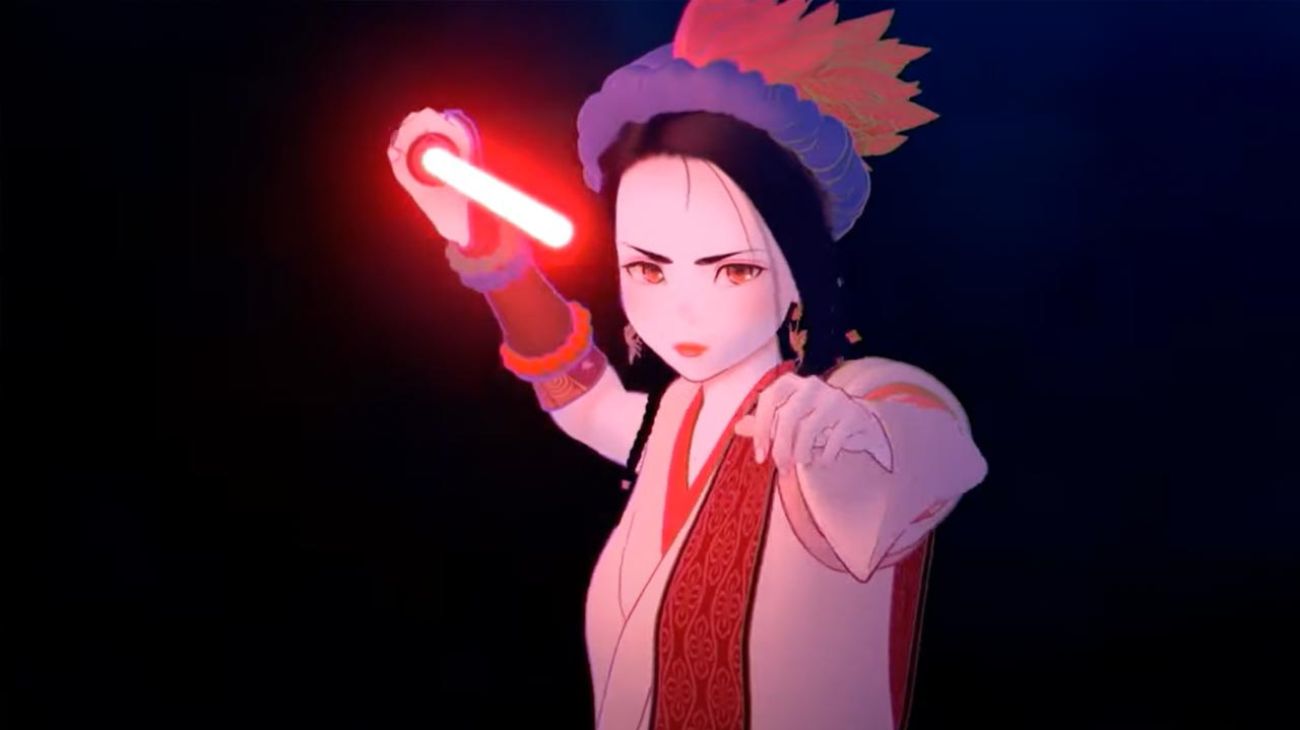
The forest becomes a living metaphor for that distance. Sounds disoriented; the colors shift, the world bends to match her fear and her doubt. What follows is a fight for her faith in the Force as much as herself.
That’s what makes “The Bird of Paradise” one of the boldest and most intimate stories Visions has attempted. It’s not about defeating evil or saving anyone. It’s about what happens when you lose everything you thought made you capable, and what’s left when you stop resisting what scares you. Nakime’s struggle isn’t with the Sith she fought; it’s with herself.
When she first tries to reconnect with the Force, the attempt is clumsy and instinctive. She trusts her eyes and not the Force. It’s one of the most basic Jedi teachings: the kind of exercise younglings use to learn focus, but Yoshihira turns it into a metaphor for paralysis. When you’re scared, the Force feels distant. When you’re blinded, it feels impossible.
“The Bird of Paradise” is one of the most intimate stories in Star Wars Visions Volume 3.
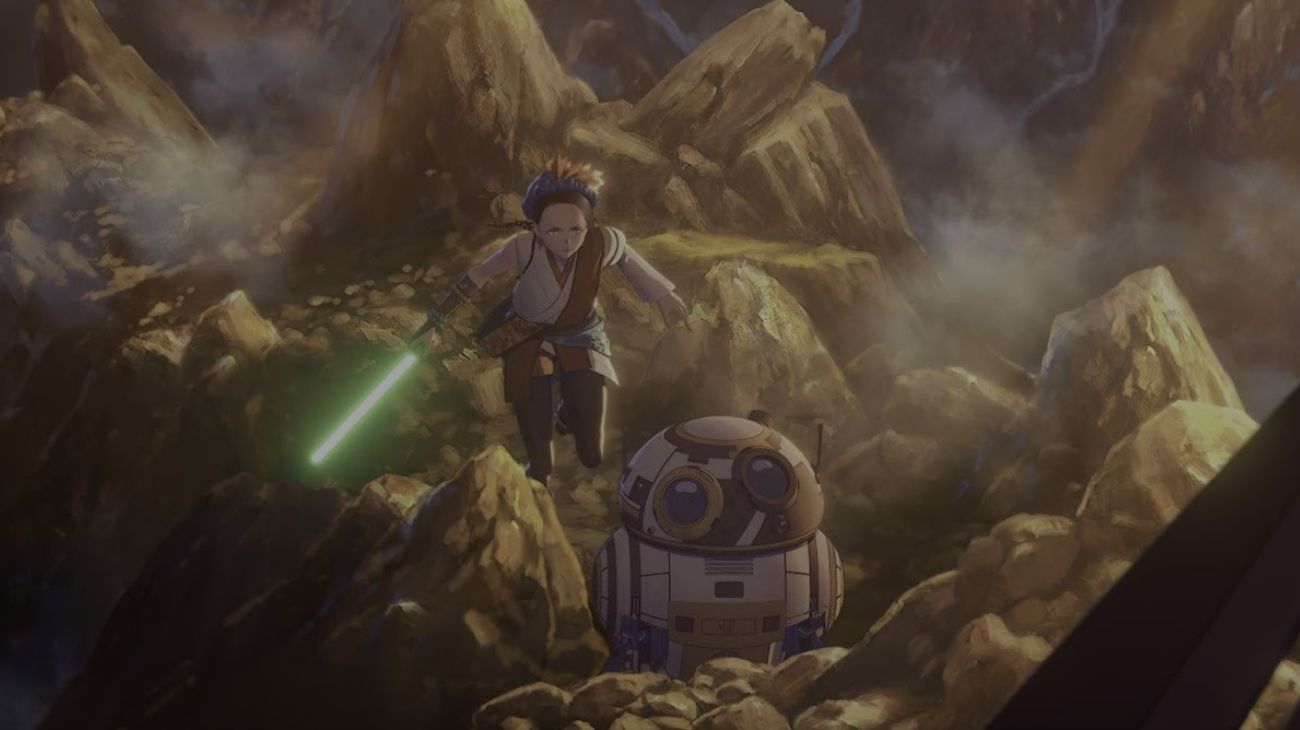
And that’s what “The Bird of Paradise” captures so beautifully: the way fear can drown out faith. Nakime’s lesson is that the Force doesn’t obey control. As she moves deeper into the forest, the world becomes increasingly surreal and cosmic. A toad-like Force spirit appears, less mentor than mirror, guiding her through visions that distort reality. The environment evolves with her emotions as the line between the physical and the spiritual dissolves, until both become the same.
This is Star Wars as a psychedelic meditation. Every element of the short, the sound design, the shifting landscapes, the deliberate pacing, feels designed to put you inside Nakime’s head. Her blindness becomes your lens. You feel the panic of losing orientation, the quiet ache of realizing that control was never the goal. It’s the kind of sequence animation that animation was made for, and Project Studio Q commits completely.
When Nakime finally faces her reflection, her dark self, born of her own anger and despair, it’s not a fight. It’s a reckoning. The encounter recalls Luke’s confrontation in the Dagobah cave or Rey’s reflection chamber on Ahch-To, but where those scenes were brief glimpses, this short stretches the moment into an odyssey. The duel isn’t about striking an enemy; it’s about seeing the truth: the dark side isn’t something to destroy. It’s something to accept.
Star Wars Visions Volume 3 Episode 8 isn’t about a battle, but rather about making peace with yourself.
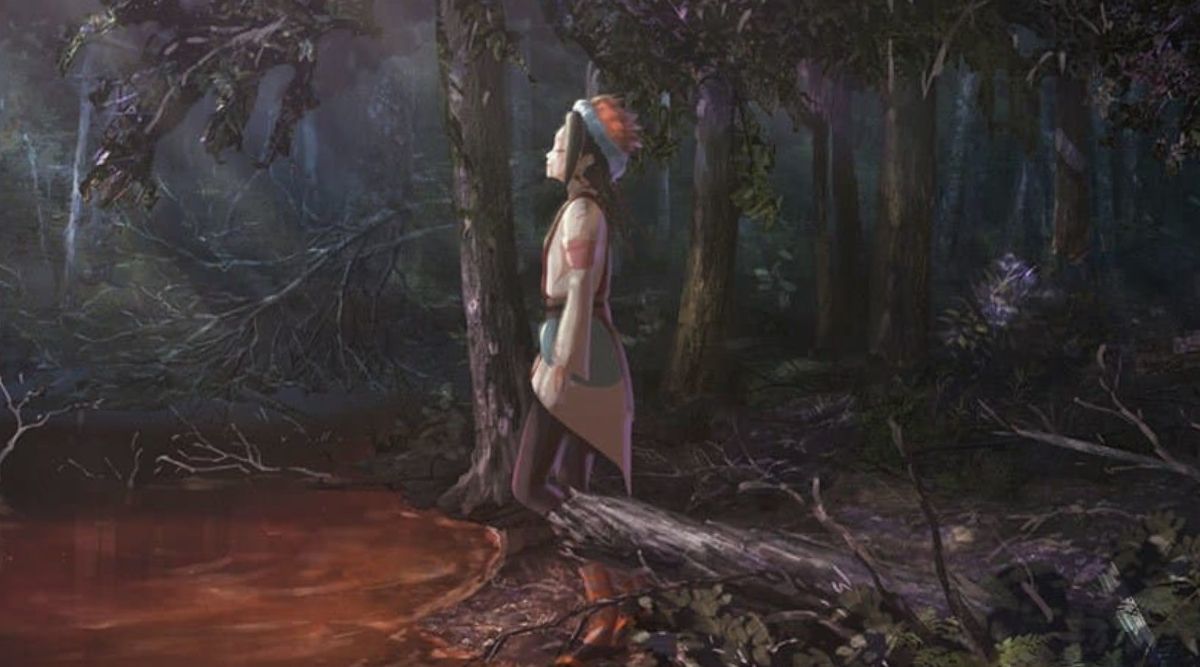
By the time Nakime opens her eyes again, her blindness no longer feels like a limitation. It’s a liberation. She doesn’t see with her eyes; she sees through the Force. That transformation, the act of seeing without sight, of believing without proof, is Star Wars distilled to its essence.
There’s no villain’s death to celebrate, no council to validate her. Just a young woman who has made peace with herself, ready to rejoin a galaxy that may never know what she endured.
And that’s the brilliance of what Project Studio Q achieves here. They don’t have the pedigree of Production I.G. or the legacy of TRIGGER, but “The Bird of Paradise” proves they can stand alongside them, and maybe even surpass their teachers. Where others played it safe in Visions Volume 3, Project Studio Q reached inward, delivering something deeply spiritual and unapologetically weird. It’s Star Wars myth turned surrealist poetry.
What’s most exciting, though, is what this means for the future of Visions. “The Bird of Paradise” reminds us that Visions still belongs to the dreamers, proving Star Wars is at its best when it lets us feel the Force, not explain it. By its end, Nakime hasn’t conquered anything. She’s simply learned to be. And in Star Wars, that’s always been the hardest lesson to learn.
Star Wars: Visions Volume 3 Episode 8 is streaming now on Disney+.
Previous Episode | Next Episode
Star Wars: Visions Volume 1 | Star Wars: Visions Volume 2 | Star Wars: Visions Volume 3
Star Wars Visions Volume 3 Episode 8
-
Rating - 9.5/109.5/10
TL:DR
“The Bird of Paradise” reminds us that Visions still belongs to the dreamers, proving Star Wars is at its best when it lets us feel the Force, not explain it.

